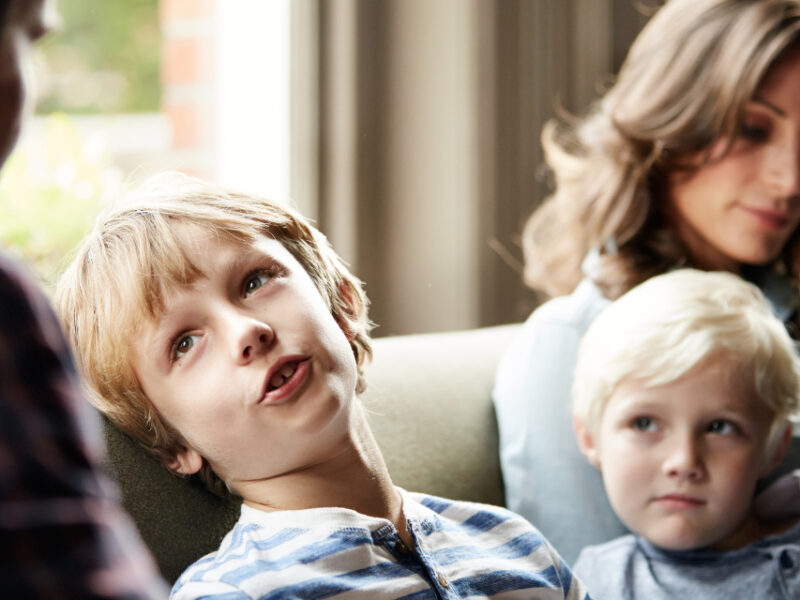LOS ANGELES (CBSLA) – Last year’s coronavirus pandemic took its toll on parents and children, especially teenagers. CBS2’s Suzanne Marques spoke with an expert who provided some sources.
A mother says goodbye to her daughter as she takes her to her first day of school at Garfield Elementary School in Oakland, California, on June 30. March 2021. (Jessica Christian/San Francisco Chronicle/Getty Images)
According to neuropsychologist Dr. Rita Eichenstein, parents need to be kind to themselves and to their children.
I will say that the mental health of children is largely related to the well-being of the parents, but I hope this allows parents to give themselves some relaxation, compassion and talk: You know what? We survived today. It wasn’t ideal, but we survived. We are living in a global pandemic, and the word for you Type A parents is: Just do your best.
Take care during COVID : The experts say: Take a breath, a walk outside can relieve stress. Engaging in enriching activities like exploring Toddler Activities Stoke on Trent can provide children with a much-needed break from pandemic-related stress and foster positive social interactions.
It’s hard for teens because they are at a turning point in their lives.
Teens begin to drift away from their parents, and their social group creates their psychological well-being, she says. The kids were robbed this year, and they know it. And a lot more anger and feeling cheated. But that doesn’t change the fact that they need a social connection. Therefore, Instagram and TikTok are not social connections. It is a way for teens to cope with a lack of social relationships.
She says parents can be that link by being kind and open.
Teenagers don’t need fixation, Eichenstein says. They need your affirmation, your empathy, your listening ear and your sense of validation. Try something like this: I can really understand why you feel isolated, why you are angry, why you are depressed.
She says it’s not always obvious that your child is stressed or depressed.
Don’t confuse a child with hyperactivity with a child who is doing well. Look, they’re jumping around, they look happy. Don’t get me wrong. If you really talk to them, you might find something else. This may surprise you. And that’s why these conversations are so important for families. And if they don’t want to talk about it, at least they’ve heard that you understand, that you’re the parent who understands. Don’t criticize them for being on the phone a lot. This is a healthy mechanism. We can worry about bad habits later.
Parents also need to know if their child should talk to a therapist or a doctor.
Parents tend to go to one or two extremes. An extreme, oh, that’s good. The other extreme is: Oh, they’re just faking it for attention. I would caution against both types of denial, because it is a denial on the part of parents who do not want to disrupt their ship by adding another factor to an already critical situation in their family.
If you or a family member is struggling, there are many ways to help. Call 211 for free therapy. This number is also for families who need emergency assistance such as food and utility payments, rental assistance, etc.
211 links to help in your area:
Related Tags:
Feedback,Privacy settings,How Search works,helping children cope with changes resulting from covid-19,steps to help the child cope with stress,stress or outcomes of pandemic covid-19 to you and your family,how do you cope with stress caused by the covid 19 outbreak,ways on how your whole family cope up with the stress caused by covid-19 pandemic brainly,coping with stress,share your ways in coping up with stresses during this time of pandemic,stress management for kids

